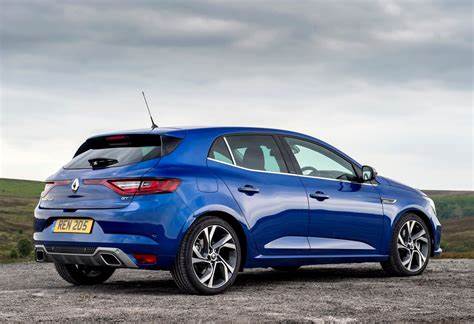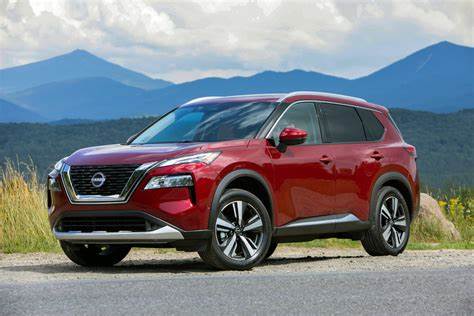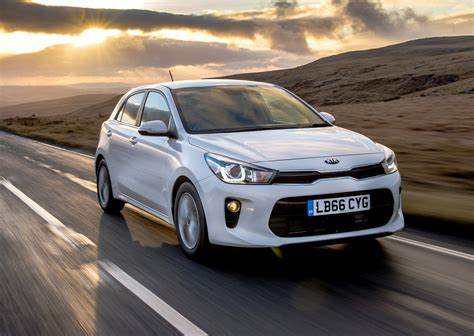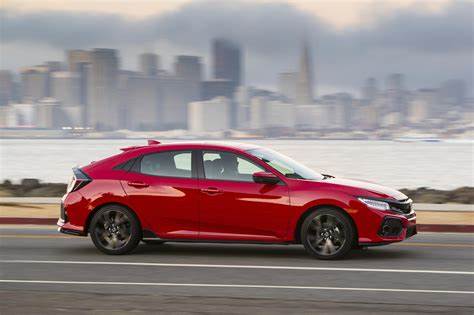When purchasing your first car, choosing between a hatchback and a compact SUV can feel overwhelming. These two vehicle types are among the most popular choices, each offering unique advantages tailored to different needs and lifestyles. Hatchbacks boast practicality and affordability, while compact SUVs appeal with their elevated stance and spacious interiors.
In this detailed comparison, we’ll explore the strengths and drawbacks of both hatchbacks and compact SUVs. Whether you’re prioritizing fuel efficiency, storage capacity, or budget, this guide will help you make an informed decision and drive off with a vehicle that matches your lifestyle perfectly.
Size and Space: Finding the Right Fit
One of the most significant differences between hatchbacks and compact SUVs lies in their size and interior space.
Hatchback Advantages
Hatchbacks are compact vehicles ideal for navigating crowded urban streets and fitting into tight parking spots. Their smaller size makes them more agile, which is a significant plus for first-time drivers.
Interior Layout: Despite their smaller exterior, hatchbacks often have a surprising amount of cargo space due to their foldable rear seats.
Ease of Driving: Their lower profile improves handling and makes them easier to maneuver in traffic.
Compact SUV Benefits
Compact SUVs offer more room for passengers and cargo, making them a practical choice for families or those who frequently travel with friends.

Versatility: With a taller body design, compact SUVs provide additional headroom and a more commanding view of the road.
Cargo Space: Many compact SUVs come with larger trunks and the ability to tow small loads, perfect for adventurous buyers.
Performance: Handling and Power
When comparing hatchbacks and compact SUVs, performance can vary significantly based on the model and engine specifications.
Hatchback Highlights
Hatchbacks excel in fuel efficiency and nimbleness, often delivering a more engaging driving experience.
Fuel Economy: Their smaller engines typically consume less fuel, saving you money at the pump.
City Driving: Lightweight and agile, hatchbacks handle well in urban environments and on tight streets.
Compact SUV Capabilities
Compact SUVs are designed to balance comfort and power, offering better performance for diverse terrains.
All-Wheel Drive Options: Many compact SUVs are equipped with AWD, making them suitable for light off-road use and snowy conditions.
Engine Power: With larger engines, compact SUVs provide stronger acceleration and towing capabilities compared to hatchbacks.
Fuel Efficiency: Cost Savings for Long-Term Use
For first-time car buyers, fuel economy is often a significant factor.

Hatchbacks Lead in Efficiency
Hatchbacks are widely known for their exceptional gas mileage, making them an economical option for everyday driving.
City and Highway Driving: Hatchbacks are optimized for stop-and-go traffic as well as highway cruising, reducing overall fuel consumption.
Eco-Friendly Models: Many manufacturers offer hybrid or electric hatchbacks for environmentally conscious buyers.
Compact SUVs Close the Gap
Although they consume more fuel than hatchbacks, compact SUVs have improved in efficiency due to advancements in engine technology and hybrid models.
Hybrid SUVs: Newer compact SUVs with hybrid powertrains are narrowing the gap in fuel efficiency, appealing to eco-conscious drivers.
Long Trips: Their larger fuel tanks may make them more convenient for road trips or extended drives.
Cost Considerations: Budgeting for Your First Car
Affordability is a top concern for first-time buyers, and hatchbacks and compact SUVs differ significantly in this area.
Hatchbacks Are Budget-Friendly
Hatchbacks are generally more affordable upfront and have lower maintenance costs.
Purchase Price: Typically, hatchbacks cost less than compact SUVs, making them ideal for buyers with limited budgets.
Insurance and Taxes: With lower market values, hatchbacks often have reduced insurance premiums and taxes.
Compact SUVs Offer Long-Term Value
While compact SUVs have a higher starting price, their versatility and durability may offer better long-term value.
Resale Value: Compact SUVs tend to retain their value better than hatchbacks due to their popularity.
Added Features: Many compact SUVs come with advanced features like all-wheel drive, which justifies the higher price.
Safety Features: Prioritizing Peace of Mind
Safety is paramount for first-time buyers, and both vehicle types come equipped with modern safety technology.
Hatchbacks Prioritize Accessibility
Hatchbacks often feature a range of standard safety tools, making them a great option for budget-conscious buyers.
Standard Features: Many hatchbacks include lane-keeping assist, automatic emergency braking, and rearview cameras.
Maneuverability: Their compact size makes it easier to avoid obstacles and park in tight spaces.
Compact SUVs Deliver Advanced Protection
Compact SUVs take safety a step further by incorporating advanced technologies and offering better crash protection due to their size.
Driver Assistance Systems: Features like blind-spot monitoring, adaptive cruise control, and 360-degree cameras are commonly available.
Higher Seating Position: The elevated driving position improves visibility, reducing blind spots.
Lifestyle Suitability: Which Matches Your Needs?
Your lifestyle plays a crucial role in deciding between a hatchback and a compact SUV.
Hatchbacks for City Dwellers
Hatchbacks are perfect for urban environments where parking space is limited and fuel efficiency is a must.
Commuting: Their compact size and great gas mileage make them ideal for daily commutes.
Young Professionals: With sleek designs and modern interiors, hatchbacks appeal to young buyers.
Compact SUVs for Active Lifestyles
Compact SUVs cater to drivers who need versatility and space for various activities.
Family Use: Their spacious interiors make compact SUVs suitable for small families or pet owners.
Weekend Adventures: Features like AWD and higher ground clearance allow compact SUVs to handle outdoor trips and mild off-road trails.
Aesthetic Appeal: Style vs. Functionality
Personal preference often comes down to aesthetics, and both vehicle types offer distinct looks.
Hatchback Styles
Hatchbacks are known for their sleek, sporty designs.
Modern Appeal: Many hatchbacks have streamlined designs that make them look stylish and youthful.
Customization: Hatchbacks often offer various trim levels and color options to suit individual tastes.
Compact SUV Designs
Compact SUVs emphasize ruggedness and sophistication.
Bold Presence: Their larger frames and elevated profiles exude confidence and capability.
Luxury Options: Higher-end compact SUVs come with premium materials and upscale features, appealing to luxury-minded buyers.
Final Thoughts: Which Should You Choose?
Ultimately, the decision between a hatchback and a compact SUV depends on your priorities, lifestyle, and budget.

Choose a Hatchback If:
You want an affordable, fuel-efficient car.
You live in a city and need easy maneuverability.
You value practicality over size.
Opt for a Compact SUV If:
You need more interior space for passengers and cargo.
You enjoy outdoor activities and need a versatile vehicle.
You prefer a commanding view of the road and advanced features.
Conclusion
Hatchbacks and compact SUVs each offer unique advantages, making them excellent options for first-time buyers. Hatchbacks excel in affordability, fuel economy, and urban driving, while compact SUVs provide versatility, spaciousness, and a commanding presence.
By assessing your needs, budget, and lifestyle, you can confidently choose the vehicle type that suits you best. Whether you prioritize efficiency or versatility, both options are designed to deliver an enjoyable and reliable driving experience.

Leave a Reply